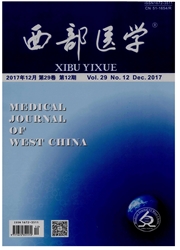

 中文摘要:
中文摘要:
老年急性髓细胞白血病(AML)预后不良的主要因素是继发于骨髓增生异常综合征(MDS)的比例明显增高,预后不良的染色体核型及基因类型以及伴随的基础疾病较多而导致化疗的耐受性差。对老年AML患者进行治疗耐受性评估,选择适合的治疗方案是治疗老年AML的重要环节:对适合化疗的患者,应用地西他滨单药或含地西他滨的化疗可明显提高患者的耐受性和改善预后;对于能够耐受减低剂量异基因造血干细胞移植(Allo-HSCT)的老年AML患者,选择移植治疗后获益更大。但移植前获得疾病完全缓解(CR),特别残留病阴性的CR状态(CRMRD)是提高移植后远期疗效的关键。研究证实,地西他滨的合理应用,对提高移植前CR率,提高移植疗效,防止移植后复发及严重移植物抗宿主病(GVHD)、慢性移植物抗宿主病(cGVHD)的发生,均具有重要价值。
 英文摘要:
英文摘要:
The major factors contributed to poor prognosis in elderly AML. The proportion of secondary to myelo-dyspIastie syndromes (MDS) was significantly higher than that of young people. The chromosomal karyotype and gene mutations associated with poor prognosis are more common. Accompanied with many underlying diseases leaded to poor tolerance to chemotherapy. Therefore, before the treatment of elderly patients with AML is identified, It is necessary to evaluate the patient's tolerance to chemotherapy carefully. While those who unfit for curative chemotherapy, palliative treatment or best supporting care were recommended, the other elderly patients who fit for chemotherapy should accept combined chemotherapy with decitabine or decitabine, it can obviously improve patient tolerance, prolong survival and improve prognosis. For elderly patients with AML who are able to tolerate a reduced dose of Allo-HSCT, a greater bene- fit can be obtained by the choice of transplant therapy. However, obtaining CR before transplantation, especially CRMRD before transplantation, is the key to improve the long-term survivor after transplantation. A number of studies have demonstrated that the reasonable application of decitabine, before, during and after transplantation, can improve the rate of CR before transplantation, improve the efficacy of transplantation, prevent recurrence and severe GVHD, espe- cially the occurrence of cGVHD, after transplantation.
 同期刊论文项目
同期刊论文项目
 同项目期刊论文
同项目期刊论文
 期刊信息
期刊信息
